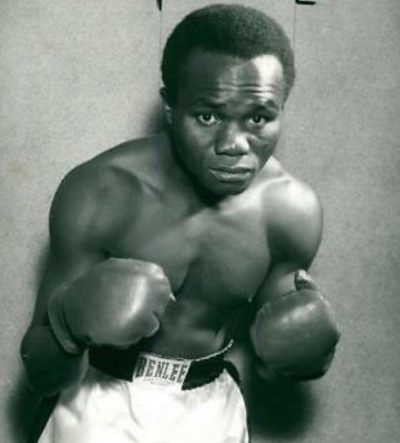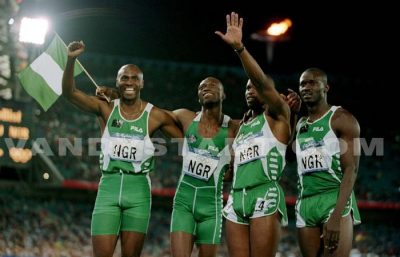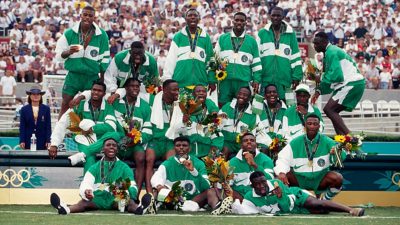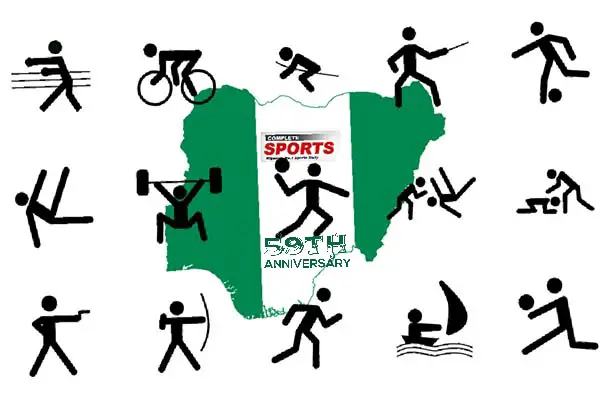The death of sports development!
Every year at about this time I receive requests from media organisations to contribute to the discussion on the state of Nigerian sports since Independence.
For many recent years, I have found the experience traumatizing because not much is being achieved.
The production room has dried up and sports are no longer growing on the basis of a national plan or policy deployed to steer their development.
The sports development years have been over for decades. I can, indeed, pinpoint the year, the moment, that sports development halted in Nigeria.
If you wake up the respected Chief Adegboyega Onigbinde from slumber on any day and ask him what he thinks about sports development in Nigeria, he will tell you, with all the authority of his grounding in sports at different times as a teacher, a games master, a coach of top clubs in Nigeria, two-time manager of the Nigerian national team, member of the technical Committees and Technical working groups of CAF and FIFA, that Sports development no longer exists in our sports firmament. What exists is participation in sports competitions, no development.
He is right. Nigeria stopped developing sports in 1993.
HOW IT HAPPENED!
Unfortunate circumstances subsumed the National Sports Commission, NSC, that was developing sports from the early 1970s and doing a great job into the Ministry of Information, Youth and Sports, around 1991 or 1992.
The offices of the Director of Sports of the NSC (a field technician) with that of the Director of Sports in the ministry (a civil servant) became one.
The beneficiary of the merger and new office, an academician, newly engaged by the ministry without any previous experience or grounding in the original vision of the trajectory of sports development in the NSC, was also given the responsibility to run the most powerful and complex sports association in Nigeria, the NFA. He was made the sole administrator.
Such untested power could be intoxicating even for the strongest homo sapiens. Of course, power corrupts, and absolute power corrupts absolutely. It became a tipping and turning point for Nigerian sports development.
Needless to go into the details, but the resultant effect is that sport, in all ramifications, lost its original direction and has not recovered ever since, 36 years after!
Governments were fed a new diet of sports development. Their understanding and their attitudes changed irreversibly since then. The unintended damage was too deep and too wide.
However, on the field and tracks, the next few years from 1993 witnessed the country’s greatest achievements in sports competitions.
Ironically, those achievements were harvests of the two previous decades of a planned and orchestrated sports development programme. The seeds planted then, between 1960 and 1992, were bearing rich fruits, and would continue to do so for several years after, until 2000 when the trees, without sustained cultivation and nurturing, stopped producing fruits.
That’s what happened when, between 1993 and 2000, some of the greatest moments in the history of Nigerian sports were recorded.
NIGERIA’s GREATEST SPORTS MOMENTS
On the anniversary of our 59th Independence Day, I feel like lifting my own spirit by going down memory lane and dovetailing to the best moments in our history since 1960.
This is a purely academic exercise. It cannot be agreeable to everybody.
However, in selecting my best moments since 1960, I am restricting my choice(s) to moments when the country achieved what would be considered the ultimate in the world.
Such moments are few in all our history.
I can count them on the fingers of one hand.

Hogan ‘Kid’ Bassey
BOXING
Boxing is a sport that brought a lot of glory to Nigeria before and after Independence. The most notable pre-Independence achievement was by Hogan ‘Kid’ Bassey who won the World Featherweight boxing championship fight in Liverpool in 1957.
After Independence, in 1963, another Nigerian, Dick Tiger, fought America’s Gene Fulmer, and won the World Middle weight boxing championship. It was fought at the Liberty Stadium, Ibadan, Nigeria, in a historic fight that was covered by Africa’s first television station at the time, WNTV/WNBS, and may have been the first live transmission of a sports event in Africa.
In 1979, Davidson Andeh became the first and only Nigerian to win the World Amateur Lightweight boxing championship fight against a Russian opponent, in Belgrade, Yugoslavia.
Anthony Joshua, British-born Nigerian, fought and won the 3 unified Heavyweight titles in 2018, only to lose it months later, rather foolishly, in a fight he was not mentally and physically prepared for. His achievement, however, is unprecedented in Nigeria’s boxing history.
TRACK AND FIELD ATHLETICS
Track and Field athletics is the one area that Nigeria has achieved the most and showed the greatest potential to be amongst the best in the world.
In terms of victories and international records at the highest levels there have only ever been two moments of supreme performance. They were at the Olympics of 1996 and 2000.
The quarter-mile relay quartet at the 2000 Sydney Olympic games did not win their final race. In fact, a replay of the entire race on television does not indicate until the last few metres that Nigeria were in the race. All the focus and attention were on the American team led by Michael Johnson.

The Nigerians ran the race of their lives and came second. Sunday Bada, Jude Monye, Clement Chukwu and Enefiok Udo Obong, 12 years later, had their Silver medals converted on merit to Gold when the one of the runners in the American winning team were disqualified following a failed dope test and the team’s victory was upturned and handed to Nigeria. Because it was not won the first time on the tracks, that moment was not even properly captured in the minds of most Nigerians. Their achievement was the greatest ever in men’s athletics in our history.
The other event, and moment, was Chioma Ajunwa’s unexpected but absolutely stunning 7.12 metres first jump at the 1996 Atlanta Olympics.
Totally unexpected because she had just come out of a 4 –year ban, her jump is recorded as the longest by any African in history, and remains the only field Gold medal ever won by an African woman at any Olympic Games.
Chioma’s giant leap stands out by miles as one of the greatest moments in Nigerian sports history.
FOOTBALL
Finally, enters football.
Nigeria has recorded a few global firsts in football.
5 times in history, the country became champions of the world at the Under-17 FIFA championships.
Unfortunately, not everyone would be enthusiastic about celebrating those moments in 1985, 1993, 2007, 2013 and 2015 because there were always lingering doubts about the authenticity of the ages of the players used for the competitions. With such doubts, it is only the achievement of the Dream Team at Atlanta 1996 that earns football a place amongst the greatest moments in Nigerian sports history.

Glittering on a giant wall inside the Atlanta Olympic stadium, embossed in gold letters, are the names of 22 Nigerian football players who put up some of the most spectacular and most entertaining football displays of any Olympics in history, played against two of the strongest teams in the world at the time, Argentina and Brazil, and came out victorious in grandest style.
Nigeria’s football Gold medal at the 1996 Olympic Games is definitely one of the two undisputed greatest moments in the history of Nigerian sports.
The players include Victor Ikpeba, Mobi Okparaku, Tijani Babangida, Daniel Amokachi, Emmanuel Amuneke, Jay Jay Okocha, Kanu Nwankwo,…..and so on.
A happy Independence Anniversary to all Nigerians.
Copyright © 2024 Completesports.com All rights reserved. The information contained in Completesports.com may not be published, broadcast, rewritten, or redistributed without the prior written authority of Completesports.com.

COMMENTS